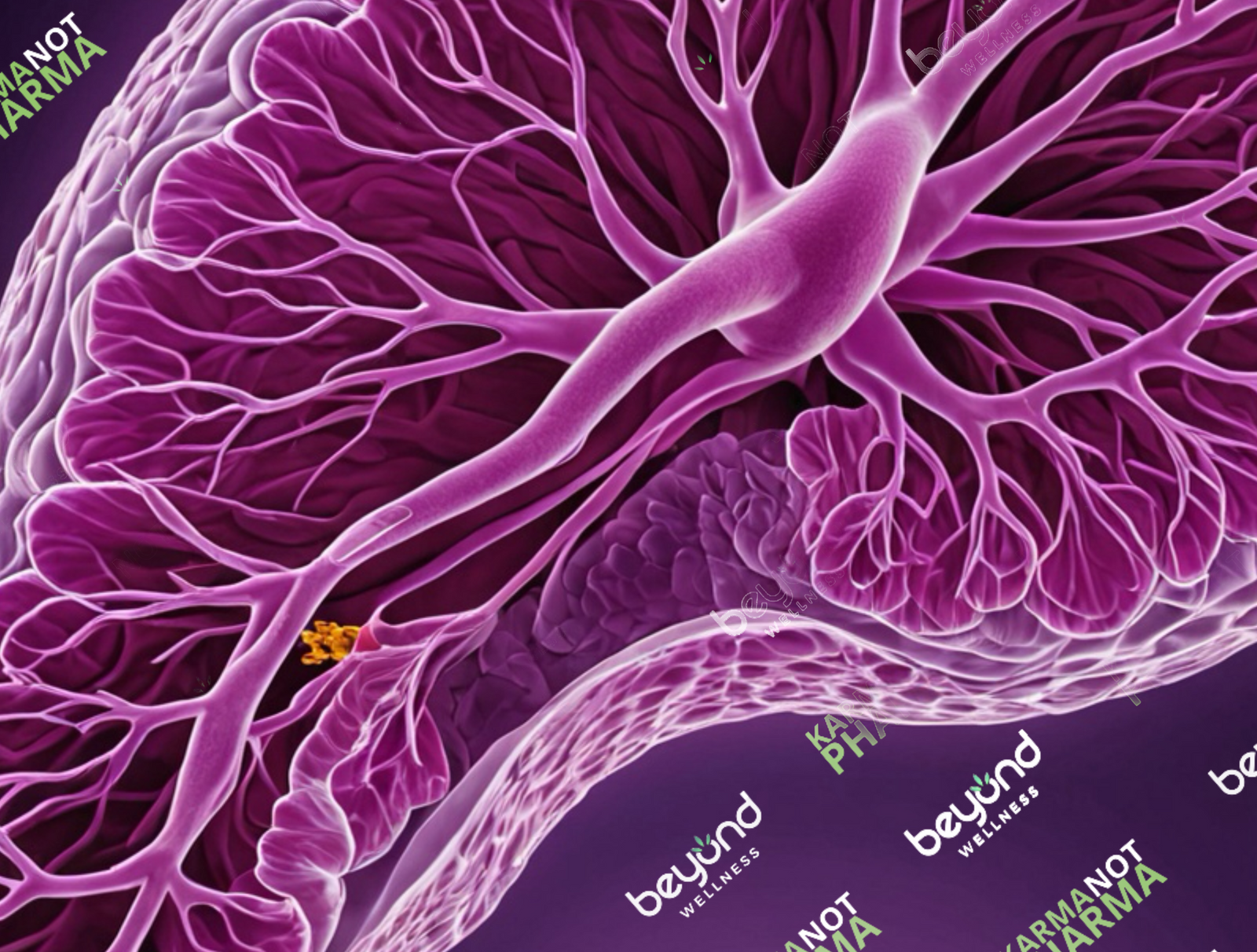Say Goodbye to Chemo: Exploring Groundbreaking Natural Cancer Protocols

Say Goodbye to Chemo: Exploring Groundbreaking Natural Cancer Protocols
When it comes to tackling pancreatic cancer, one of the most challenging and aggressive forms of cancer, people are increasingly exploring alternative therapies alongside conventional treatments. Imagine a protocol that combines cutting-edge science, natural compounds, and a holistic approach—all with the goal of empowering your journey to wellness. Here, we’ll break down an exciting protocol involving fenbendazole, ivermectin, cannabinoids like CBG and full-spectrum extracts, plus milk thistle and curcumin. Let’s dive in!
Why Consider Alternatives to Chemotherapy?
Chemotherapy is often the standard of care for pancreatic cancer, but it comes with significant challenges. While it may extend survival for some, it’s not always the best option for everyone. Here are key reasons someone might choose to avoid chemotherapy:
- Limited Effectiveness for Pancreatic Cancer: Pancreatic cancer is notoriously resistant to many chemotherapy drugs, and in advanced cases, chemo may offer only marginal survival benefits. (Read more about chemo efficacy)
- Severe Side Effects: Chemotherapy can cause debilitating side effects, including nausea, vomiting, fatigue, neuropathy, and a weakened immune system. These side effects often reduce quality of life significantly.
- Immune System Suppression: Chemo suppresses the immune system, potentially leaving patients more vulnerable to infections and less able to fight cancer naturally.
- Impact on Overall Health: For some, chemotherapy may lead to irreversible damage to vital organs, including the heart and kidneys, especially when combined with the physical toll of pancreatic cancer.
- Desire for Holistic Approaches: Many patients prefer to focus on therapies that enhance their overall health and well-being rather than treatments that primarily target the cancer itself.
It’s crucial to consult with a healthcare provider experienced in both conventional and alternative oncology to weigh the pros and cons of chemotherapy for your specific case.
Fenbendazole: An Unexpected Ally
Fenbendazole, commonly known as a deworming medication, has garnered attention for its surprising anticancer properties. Research suggests that it disrupts microtubule dynamics—the same mechanism targeted by some chemotherapy drugs—making it harder for cancer cells to divide and grow. Preclinical studies have shown fenbendazole can induce apoptosis (cell death) in cancer cells, making it a potential adjunct therapy. Click here for the science.
How to Use: Fenbendazole may be taken in cycles (e.g., three days on, four days off), but always consult your doctor for guidance.
Ivermectin: Beyond Parasites
Known for treating parasitic infections, ivermectin has shown promise in the lab as a cancer fighter. It inhibits tumor growth by interfering with cancer cell metabolism, reducing metastasis, and triggering autophagy (a cleanup process for damaged cells). Even more exciting, ivermectin may enhance the effects of traditional cancer therapies. Read the research.
How to Use: Ivermectin is typically dosed based on body weight. Work with a holistic practitioner to determine the right amount.
CBG and Full-Spectrum Cannabinoids: Plant Power at Its Finest
Cannabigerol (CBG) is a rising star among cannabinoids for its anti-inflammatory, antibacterial, and anticancer properties. Early studies suggest that CBG can inhibit cancer cell proliferation and even promote apoptosis. Pair this with the entourage effect of full-spectrum cannabinoids, and you’ve got a powerful combination to support your immune system and potentially target cancer pathways. Explore cannabinoid studies.
Why 600 MG of CBG Daily? At this dose, CBG may provide enhanced therapeutic effects without psychoactivity. Combine it with full-spectrum extracts to leverage the synergy of cannabinoids and terpenes.
Milk Thistle: The Liver’s Best Friend
Pancreatic cancer often places a heavy burden on the liver. Enter milk thistle, a natural herb rich in silymarin, which has antioxidant and anti-inflammatory properties. Studies suggest milk thistle may protect liver cells from damage and support detoxification—a crucial factor for those undergoing cancer treatment. Learn more about milk thistle.
How to Use: Standardized milk thistle extract (containing 70-80% silymarin) can be taken daily to support liver health.
Curcumin: The Golden Warrior
Curcumin, the active compound in turmeric, is a superstar in natural medicine. Its potent anti-inflammatory and anticancer properties make it invaluable for pancreatic cancer. Curcumin has been shown to inhibit cancer cell growth, reduce inflammation, and even enhance the effects of chemotherapy. Discover curcumin’s potential.
How to Use: Look for bioavailable curcumin supplements (e.g., with piperine or in liposomal form) and aim for 1-3 grams daily.
Putting It All Together
This protocol combines the best of science and nature to support your body in the fight against pancreatic cancer:
- Fenbendazole disrupts cancer cell division.
- Ivermectin helps halt tumor growth and boosts other treatments.
- CBG and full-spectrum cannabinoids bring powerful anti-inflammatory and immune-supportive effects.
- Milk thistle protects your liver and enhances detoxification.
- Curcumin fights inflammation and synergizes with traditional therapies.
A Holistic Approach to Healing
Remember, any protocol should be tailored to your unique needs. Work closely with a healthcare provider experienced in integrative oncology to ensure safety and effectiveness. With the right combination of conventional and alternative therapies, hope and healing are within reach!
Have you tried any of these approaches? Share your journey in the comments below! And don’t forget to bookmark this post for future reference. Together, we can explore the incredible possibilities of holistic cancer care.
Here are some stories and research findings related to these treatments:
- Joe Tippens' Fenbendazole Protocol: Joe Tippens popularized the use of fenbendazole, an antiparasitic drug, as part of a cancer treatment regimen after his own experience with cancer. His protocol has inspired others to explore similar treatments.
- Ivermectin and Gemcitabine Combination: A study published in Frontiers in Pharmacology explored the effects of combining ivermectin with gemcitabine, a chemotherapy drug, in treating pancreatic cancer. The combination was found to suppress pancreatic cancer cell proliferation more effectively than gemcitabine alone.
- Repurposing Anthelmintic Drugs: Research published in Cancers discusses the potential of repurposing benzimidazole anthelmintic drugs, like fenbendazole, as cancer treatments. The review highlights preclinical studies showing anticancer effects, though clinical evidence is still needed.
- Deworming Pill and Liver Cancer: Researchers at UCSF found that a deworming pill may be effective in treating liver cancer, suggesting potential for similar treatments in other cancers. While not directly related to pancreatic cancer, it opens avenues for further research.
- Curcumin's Anticancer Properties: A study in Molecules discusses curcumin's potential in cancer therapy, including its ability to inhibit cancer cell growth and metastasis. While not specific to pancreatic cancer, it provides insight into curcumin's therapeutic potential.
- Milk Thistle and Chemotherapy: Research in Cancer journal explored milk thistle's effects in children undergoing chemotherapy. The study found that milk thistle may help reduce liver toxicity associated with chemotherapy, indicating its supportive role in cancer treatment.
- Cannabinoids in Cancer Treatment: A review in *Frontlines the role of cannabinoids in cancer therapy, noting their potential to inhibit tumor growth and metastasis. While not specific to pancreatic cancer, it underscores the therapeutic potential of cannabinoids.
- Pancreatic Cancer Survivor Stories: The PancrNetwork shares survivor stories, including that of Heriberto Borges, who overcame stage IV pancreatic cancer. While not detailing specific alternative treatments, these stories offer hope and inspiration.
- Success Stories from Beat Cancer Foundation: The Beat Cancer success stories of individuals who have overcome cancer, including pancreatic cancer, using various integrative approaches. These narratives highlight the potential benefits of combining conventional and alternative therapies.
- Complementary and Alternative Medicine in Pancreatic Cancer: A review in Cancers discusses the current status of complementary and alternative medicine in pancreatic cancer treatment, providing insights into various non-conventional therapies being explored.
Have you tried any of these approaches? Share your journey in the comments below! And don’t forget to bookmark this post for future reference. Together, we can explore the incredible possibilities of holistic cancer care.












Leave a comment